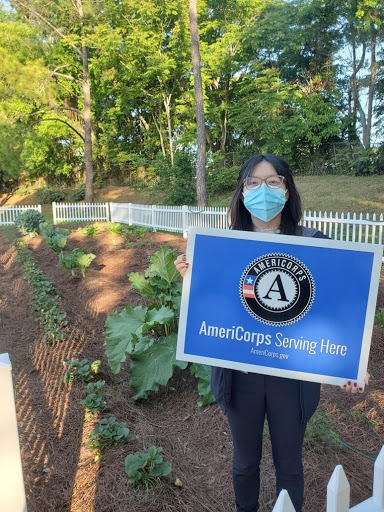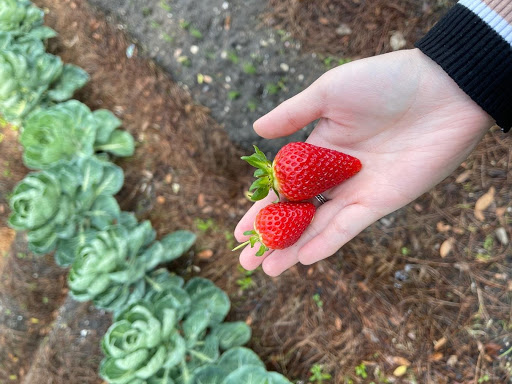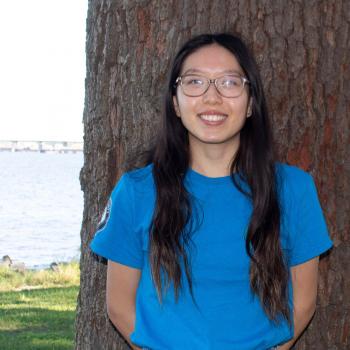The Garden’s Harvest

with rhubarb (big leaves), collards,
and strawberries (left most row).
Sowing a strawberry seed into the dirt, caring for it, watching it grow, then finally being able to taste the deliciousness is such a rewarding experience. I have seen this in the garden that was started this year for patients at Gateway Community Services, an addiction treatment center. It has provided collard greens that were served during lunch, countless strawberries enjoyed right off the vine, and giant broccoli heads plucked and eaten right in the garden. As each fruit and vegetable has been harvested, patients excitedly taste them and appreciate the fresh flavors unmatched by produce found at the grocery store. Not only does the garden encourage patients to eat more fresh food, it also opens up countless opportunities to learn and talk about nutrition and healthy eating. Whether it is talking about the different vitamins that fruits and vegetables can offer or discussions about whether iceberg lettuce was actually healthy, the patients are able to think and discuss these topics as well as find ways to incorporate it into their lives even after leaving Gateway. Just being around fresh fruits and vegetables has helped start conversations about healthy eating and lifestyles that patients can carry on throughout their lives. But it doesn’t stop there.
To start, building and caring for the garden has brought a greater sense of community among patients who shared similar interests both during their time at Gateway and after. One patient who came to each and every gardening session told me that when she went home, she was going to start her own little garden and get her family involved in doing so. The garden helped inspire her to bring her family together in a new way. Patients shared their own gardening advice and expertise to help the garden flourish, encouraging conversations about nature, growth, and progress.
One day after transplanting new seedlings into the garden and getting our hands dirty digging into the soil to make sure that each plant got some attention, another patient shared that he had been having a hard day. He said that someone was getting under his skin and he knew that it was going to ruin the rest of his day, but after this hour of gardening his frustration was but a past memory. He said he felt re-energized and ready for groups that would help him towards his recovery and sobriety. What he got from the garden was not necessarily the end product of a strawberry or carrot, it was a reminder of positivity and calm that he needed on this particular day to get the most out of his time at Gateway. It helped him overcome his stress and take on the rest of his day. One day in the garden, the patients and I began discussing what it was exactly about gardening that makes many people feel at peace. Is it the simple act of being outside in the sun or could it be the rewarding feeling that producing our own food brings? In group counseling sessions, patients often learn skills to focus on and care for themselves, as well as strategies to process emotions, both of which they are able to practice in the garden. Plucking weeds and watering plants gave them time to think, reflect, and process. Seeing their efforts pay off with a giant broccoli head or many beautiful bright strawberries, allowed them to draw a connection with how putting in time, care, and love towards themselves would allow them to thrive as well.

brussels sprouts in the background!
The Recovery Garden at Gateway Community Services produces so much. There are currently collard greens, carrots, rhubarb, tomatoes, strawberries, and more thriving in our garden. Yet, what we get from the garden does not end there. To put it simply, it brings us good times and good vibes that can be both enjoyed for ourselves and shared with others.
